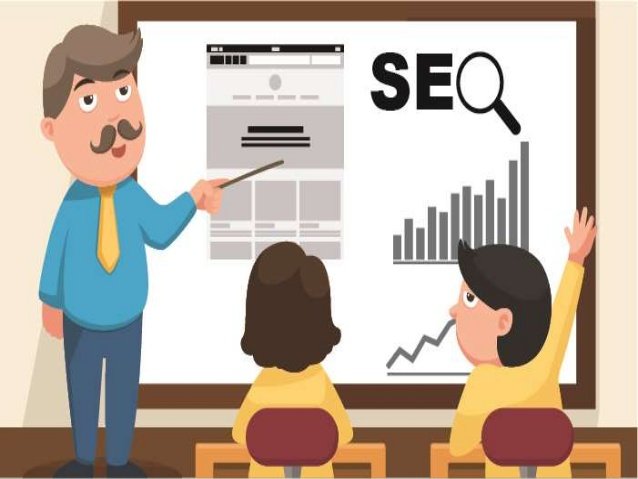A discussion regarding the impact of recent search behaviors, ever-changing websites and algorithmic program updates on the huge shifts they are seeing.

We don’t recognize right away if the net is ever-changing, if Google is ever-changing one thing, if people’s behavior is changing; however, we tend to additionally recognize that individuals square measure simply doing things therefore otherwise that it’s nearly not possible to line [these things] apart,” aforementioned Peter Meyers, promoting somebody at Moz, commenting on the new search results volatility he et al. have ascertained since COVID-19 stony-broke come in the North American nation.
The global pandemic has caused nearly everybody to value their priorities, prompting businesses and search engines to adapt similarly. throughout our search disruption episode of endure program Land weekday, hosted by program Land News Editor Barry Schwartz, Meyers and search adviser Marie Haynes, Olga Andrienko of SEMRush and Mordy Oberstein of Rank Ranger mentioned the magnitude of the fluctuations, similarly because the factors that will probably be to blame for them.
Extraordinary rankings volatility
“From March fifteen through April three, you’re talking like sixteen days of volatility — that hasn’t happened the previous couple of years,” Oberstein aforementioned, referencing the fluctuations reported by Rank Ranger’s algorithmic program observation service, that measures daily search result fluctuations for ten,000+ domains and keywords.
RankRanger’s desktop search result fluctuations from March ten to April nine.
“Google has completely different algorithms for each trade, and seeing changes across industries meant for North American nation that the entire and forceful changes in search behavior should have caused the algorithmic program to grasp and behave otherwise and provides completely different results or update the SERPs,” Andrienko aforementioned, providing one potential rationalization for the fluctuations.
A wave of website updates
Website content is additionally in flux as distancing and different safety precautions still impact businesses: “Huge e-commerce sites suddenly need to show all their product square measure out of stock or take away product or add product,” Meyers provided as associate example, adding that “We’re seeing huge changes to sites that trigger index changes and ranking changes.”
Many businesses are scrambling to search out ways that to create cash on-line by giving product or services they will not have antecedently. website homeowners square measure adding support for on-line transactions and pick-up or delivery choices, essentially ever-changing however their sites work.
Marketers are shifting focus to longer-term goals, like getting ready for a post-COVID economy: sixty three of respondents aforementioned that SEO would gain in importance either slightly or steeply throughout the economic downswing, consistent with a survey by Conductor. The wave of companies adapting their sites and techniques may additionally facilitate to elucidate the recent rankings fluctuations.
YMYL impact
Haynes noted Google’s algorithmic program update last year that emphazises experience, authoritativeness and trait (EAT) for your cash, your life (YMYL) queries. thereupon announcement, Google aforementioned “that, particularly in health queries, they need to surface sites that square measure called authorities,” aforementioned Haynes. “And we tend to see that: if you are doing searches for love or money that’s vital and associated with the Coronavirus right away, you’re aiming to see recognizable, authority health sites that square measure ranking well,” she said.
The idea that pandemic-driven search behavior is currently triggering Google’s previous health-related algorithmic program updates was additionally shared by Meyers, UN agency instructed that Google itself might not have anticipated the degree to that rankings would be affected.
The search behavior shifts and the way they feed into Google’s algorithms geared toward emergence trustworthy YMYL results was encapsulated by associate account Haynes shared: “We had one shopper UN agency, at the start of all this, had a post that went rather well, all regarding a way to create hand sanitizer. And then, all of a unexpected, they were on page 3 — they were [previously] ranking high 3 for that.”
“And you virtually surprise if it’s doable that Google’s algorithms . . . managed to work out that the means individuals square measure looking, they’re finding out health queries and it appears to be vital to people’s health right away, therefore we’re solely aiming to take results from giant, trustworthy health authorities” Haynes aforementioned, noting that the highest position for that question currently belongs to Healthline. “[The nature of the query] went from essentially, ‘here’s a way to save a number of greenbacks,’ to ‘here’s a way to not die,’” Meyers commented on the search intent shift.
Google: “Interesting speculation”
“I don’t wish to over-generalize regarding [machine learning], however after you have user inputs feeding the system, then the algorithmic program is, to a point, revising itself as our behaviors modification — then, is that us? Is that COVID? Or, is that the algorithm?” aforementioned Meyers, noting that many factors is also to blame for the rankings volatility.
“Is it doable that searcher behavior is influencing the algorithmic program itself?” program Land’s News Editor Barry Schwartz asked Google’s John Mueller throughout the Webmaster business office hours on March thirty one.
“I don’t suppose that will be happening,” Mueller aforementioned, adding that Google sees user behavior shifts come back and persist a daily basis. “These forms of shifts square measure things that our algorithms need to be careful for, therefore it’s not one thing that I’d say would be specific to the present current [pandemic] scenario,” he said.
A similar discussion was additionally started on Twitter by search promoting agency owner AJ Kohn. Long-time Google computer programmer Paul Haahr responded voice communication that it had been “interesting speculation” however neither confirming nor denying that search behavior may have such an impression on Google’s algorithms.
This post has received a 51.52 % upvote from @boomerang.
Downvoting a post can decrease pending rewards and make it less visible. Common reasons:
Submit